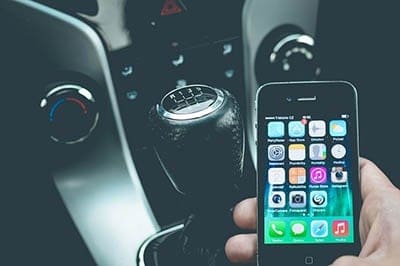 More than 1.1 million car crashes in 2013 involved the use of cell phones while driving, according to the National Safety Council. The numbers have only risen in the last couple of years, with the latest figures reading at about 1.6 million, with more than 330,000 injuries. Many of these crashes involve texting while driving, and states all throughout the nation have begun to take steps to address this growing concern.
More than 1.1 million car crashes in 2013 involved the use of cell phones while driving, according to the National Safety Council. The numbers have only risen in the last couple of years, with the latest figures reading at about 1.6 million, with more than 330,000 injuries. Many of these crashes involve texting while driving, and states all throughout the nation have begun to take steps to address this growing concern.
While there are as of yet no federal laws on the books outright outlawing cell phone use while driving, individual states, counties, and even local municipalities have all passed their own laws and ordinances.
What should you do if you’re pulled over for texting while driving in South Carolina? Let’s take a look at the facts.
What Are the National Laws?
As mentioned, there is no national law expressly forbidding the use of cell phones while driving, but the issue has come before hearings and committees many times since 2007. The federal government did pass a law that incentivizes individual states to pass laws of their own, including one grant only available to states that banned texting while driving for those 18 and under (currently most at risk for a vehicle collision while texting).
These incentives have helped more than forty states to craft legislation involving the use of cell phones while driving, with some states classifying it as a crime with serious and some regarding it more as a simple traffic violation.
It will be important to keep an eye on federal laws in the future, as the continuing rise of automobile collisions involving the use of cell phones will likely need to further federal laws to be passed.
Where Does South Carolina Stand?
Prior to 2014, South Carolina had no official laws on the books banning texting while driving, and instead depended on a confusing mishmash of local county and municipalities ordinances. For instance, upstate South Carolina drivers were allowed to speak on their cell phones in Greenville County, but not within city limits. As the city of Greenville takes up a huge amount of the county itself, this meant that drivers were never quite sure if they could talk on the phone or not. Similar issues arose in Charleston and Columbia, which led the state government to take action in 2014.
South Carolina passed legislation in that year banning texting while driving. Speaking on the phone while driving was not addressed in the law, and the use GPS apps or devices or texting while parked or at a complete stop is allowed. The fine is $25 for a single violation, with up to $50 possible after the initial violation.
What If The Police Officer Asks For My Phone?
The police officer will first ask for your license, registration, and proof of insurance, like any normal routine traffic stop. Provide these documents as needed and remain calm and pleasant. If the police officer asks for your phone to “prove” you were texting, you are not required to give it to him or her, and may politely decline.
South Carolina’s laws surrounding texting while driving specifically state the police officers are not authorized to seize either the cell phone itself or to search the vehicle in an attempt to prove texting occurred, unless they have probable cause due to another violation.
If the police officer attempts to seize your phone or search your vehicle without your consent, please seek legal representation immediately to ensure your individual rights are protected.
Check Back Next Week For Part 2: What to Do If You’ve Been in a Collision Caused by Texting While Driving!
Remember to check back here next week, where we’ll be posting part 2 of our Distracted Driving series: What to do if you’re involved in a wreck caused by someone who was texting while driving!
At Bluestein Attorneys, we’re here to help with Criminal Defense, Workers’ Compensation, VA Disability, Social Security Disability, and more from our offices here in Columbia, South Carolina. Reach us by phone at (803) 779-7599 or contact us online at any time. Our blog will help you stay up to date with important legal information for South Carolina and beyond. Contact us today to request your FREE consultation.



